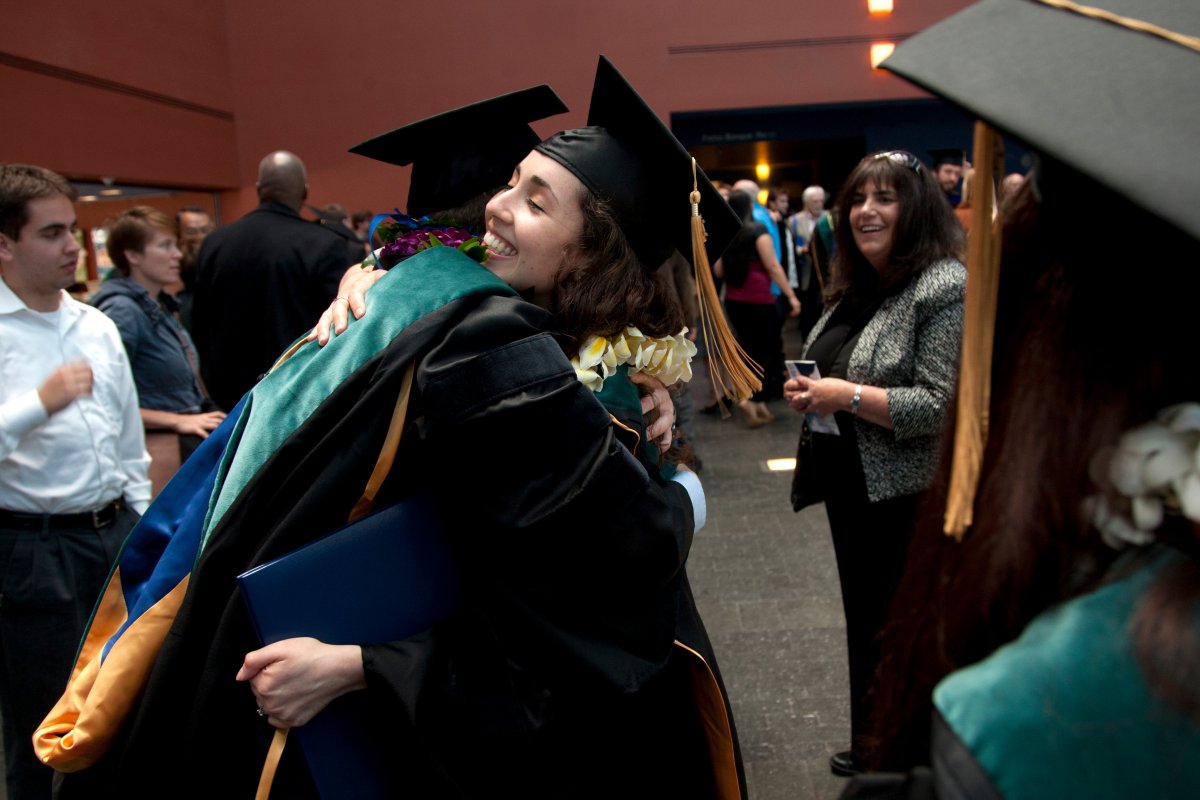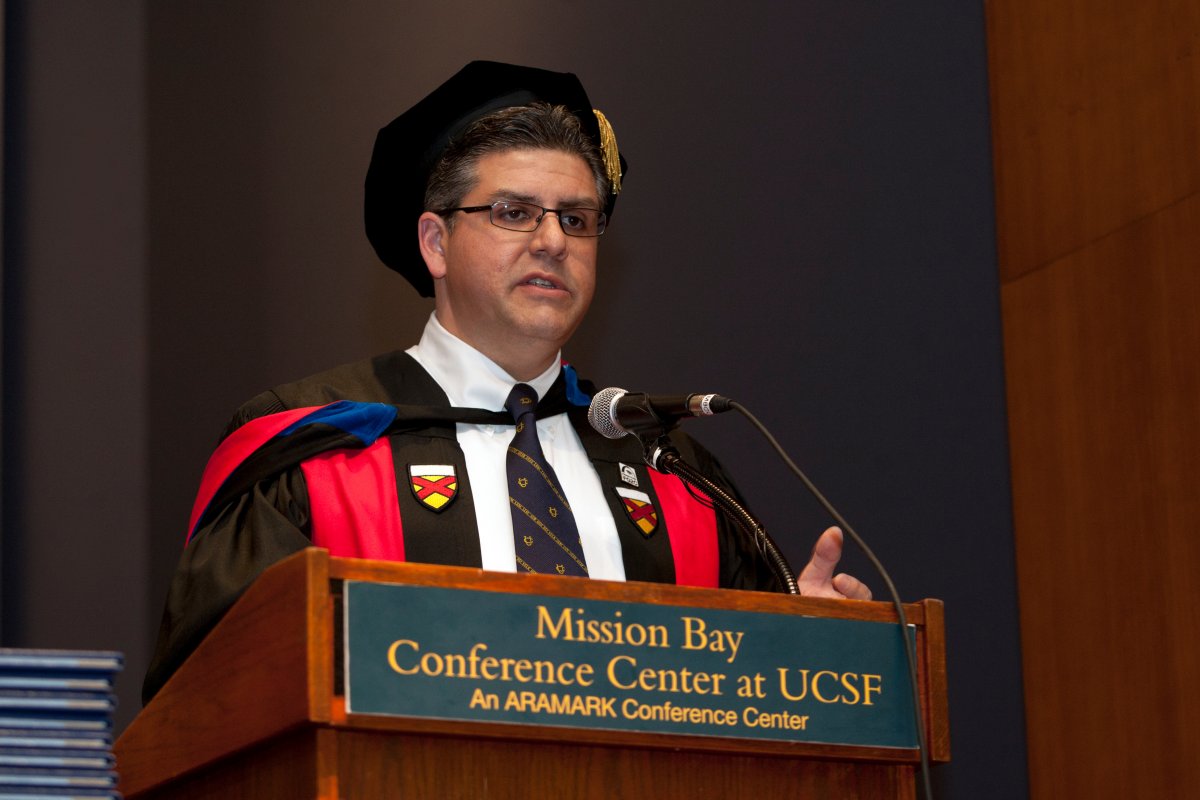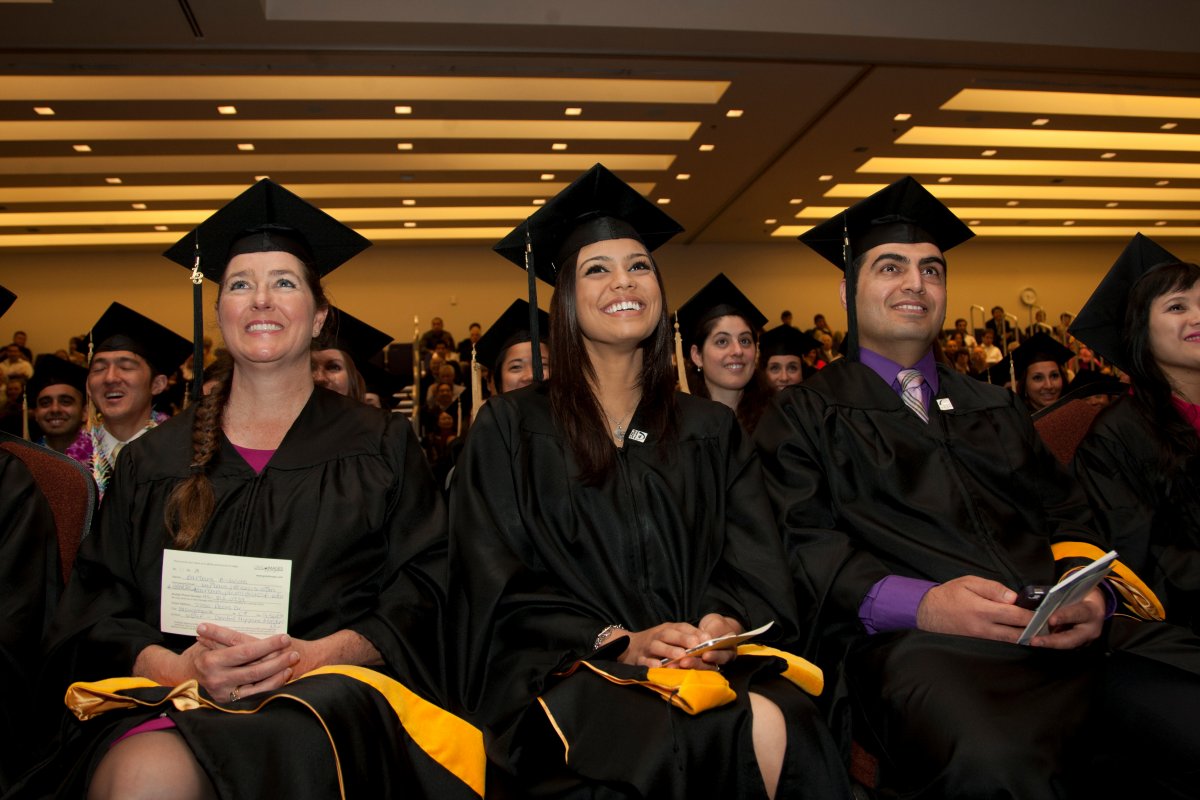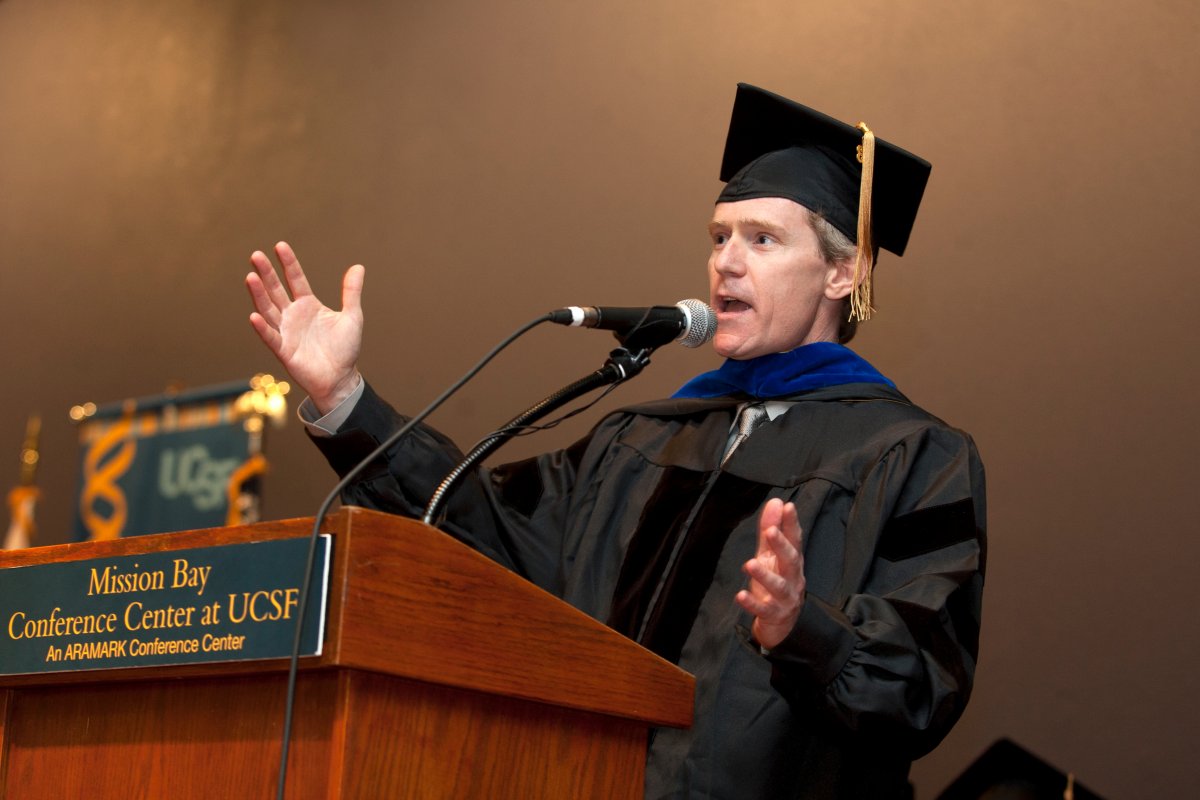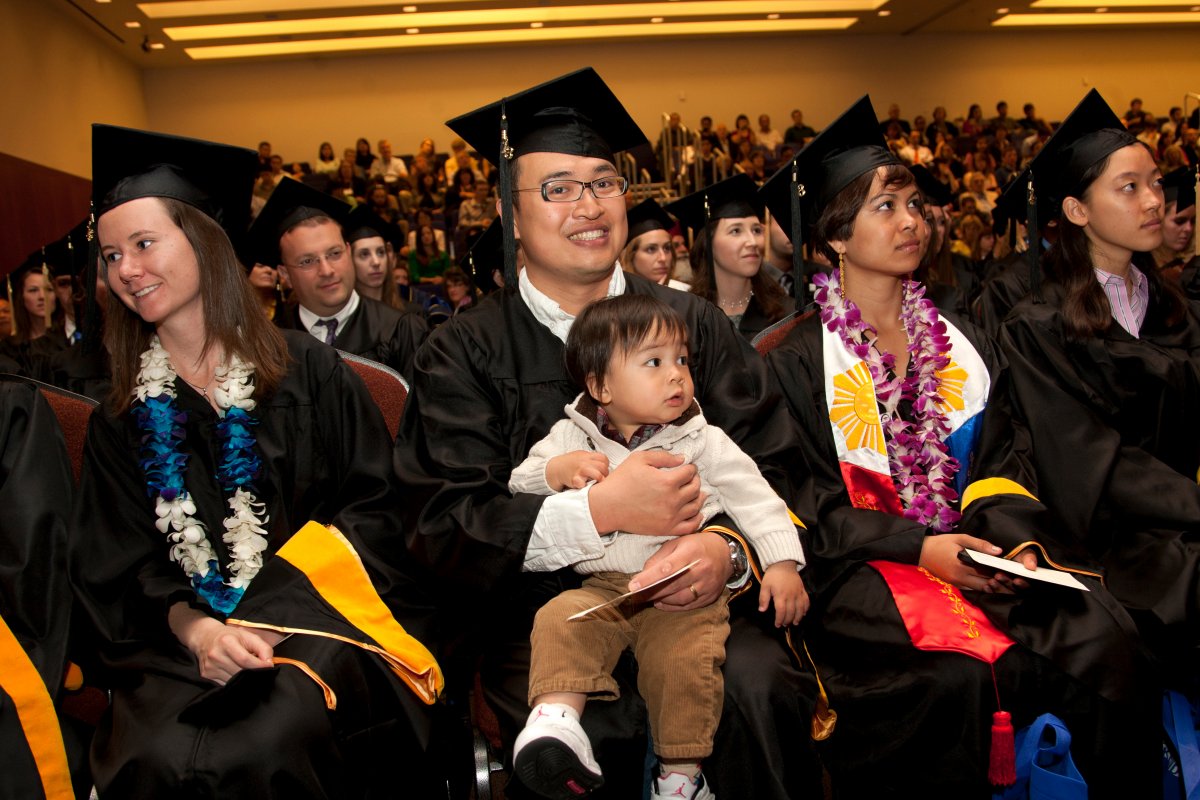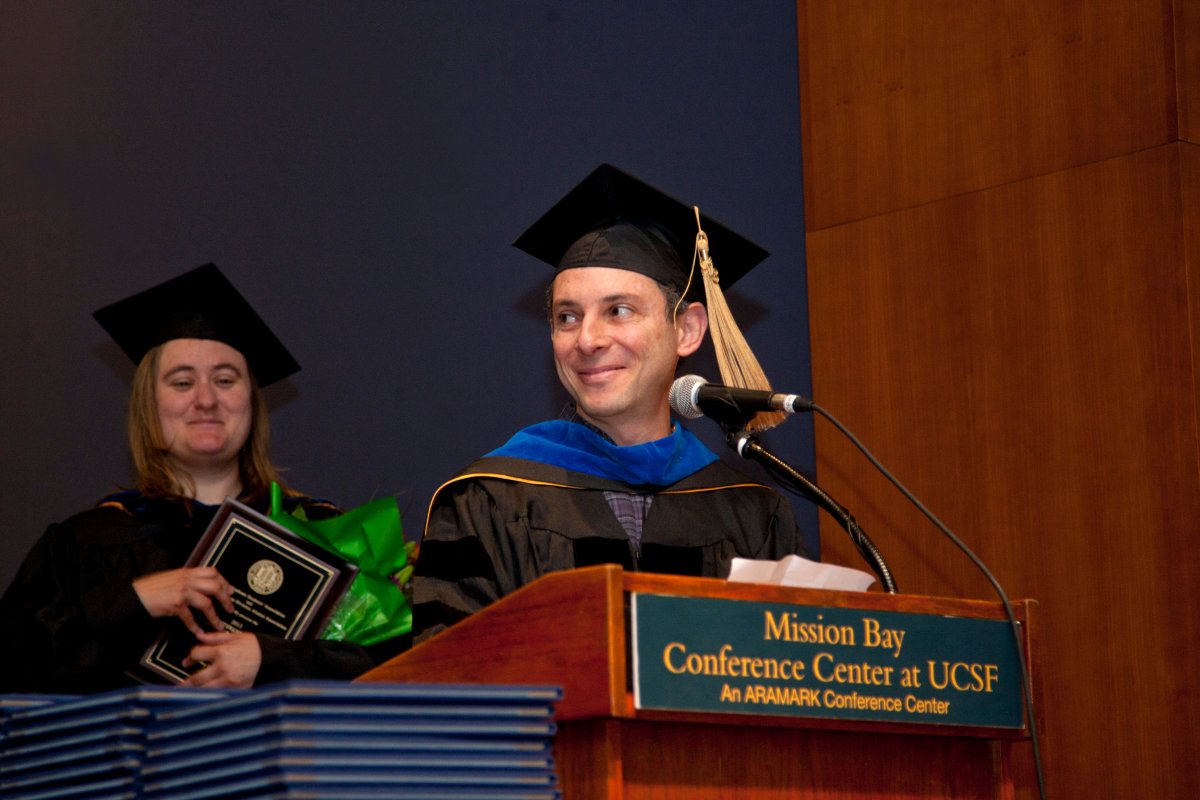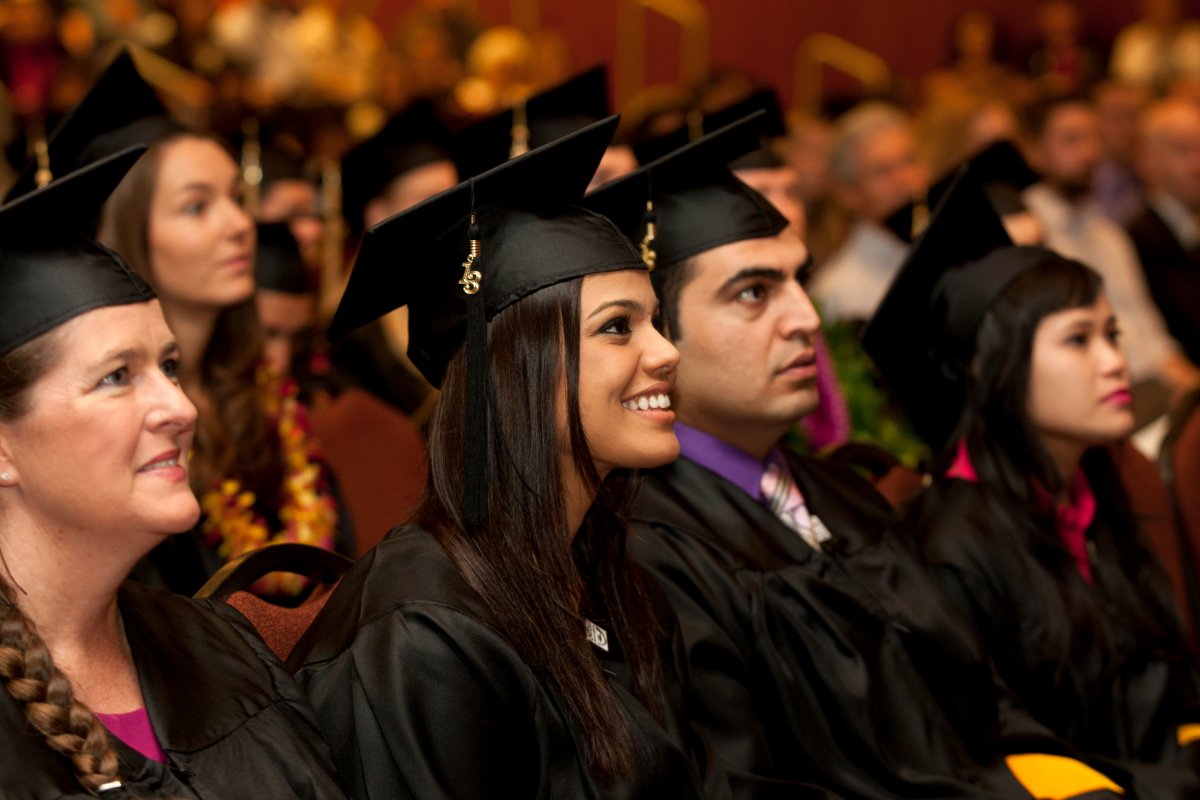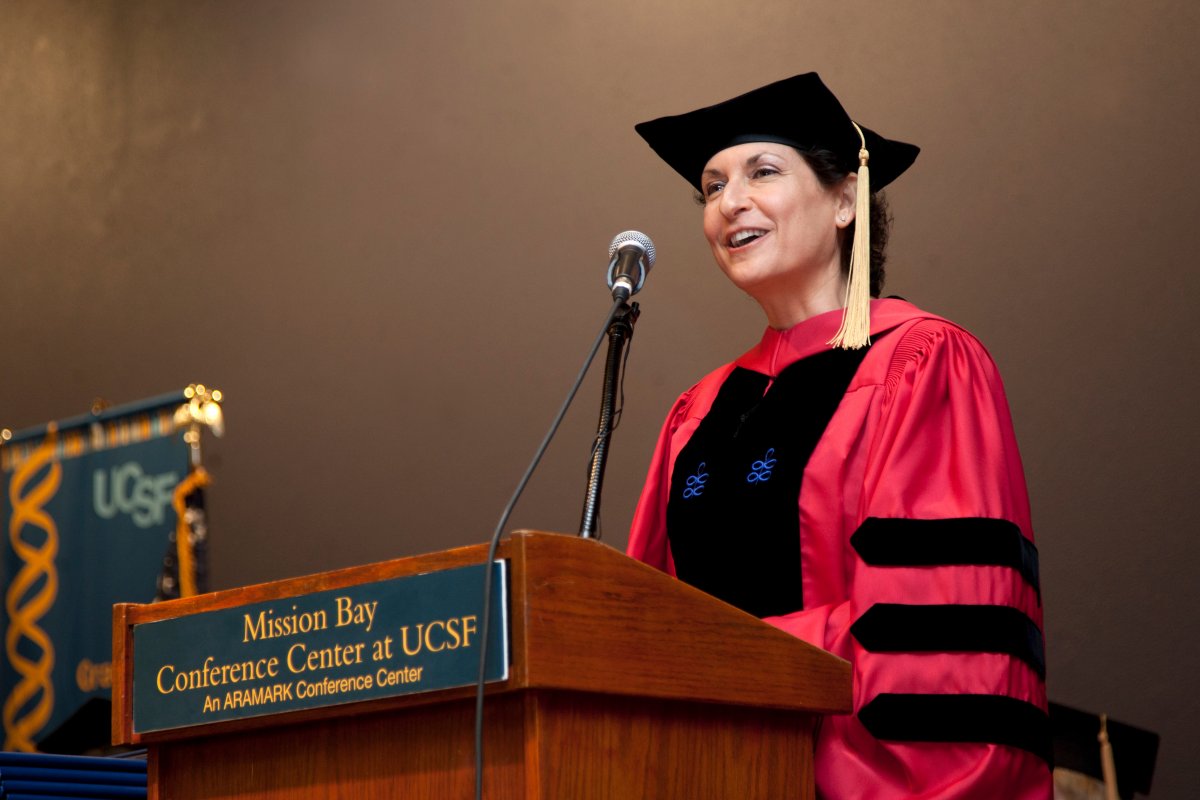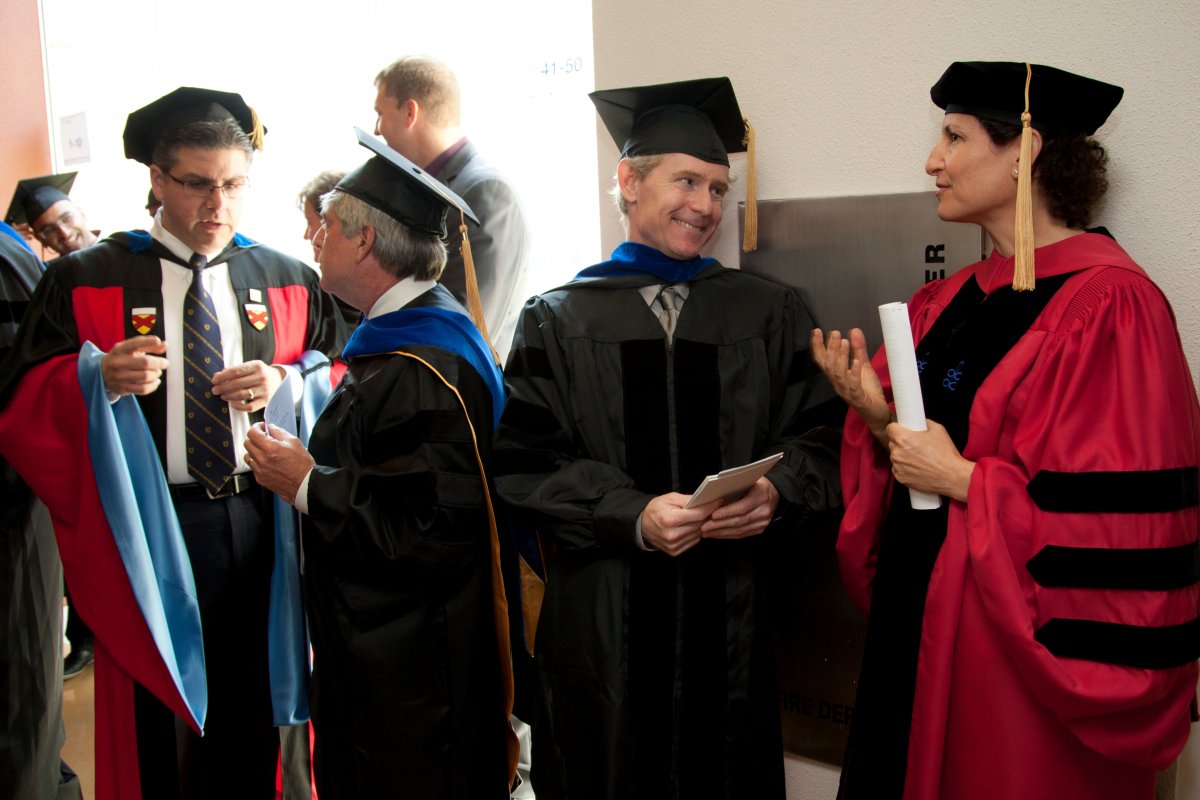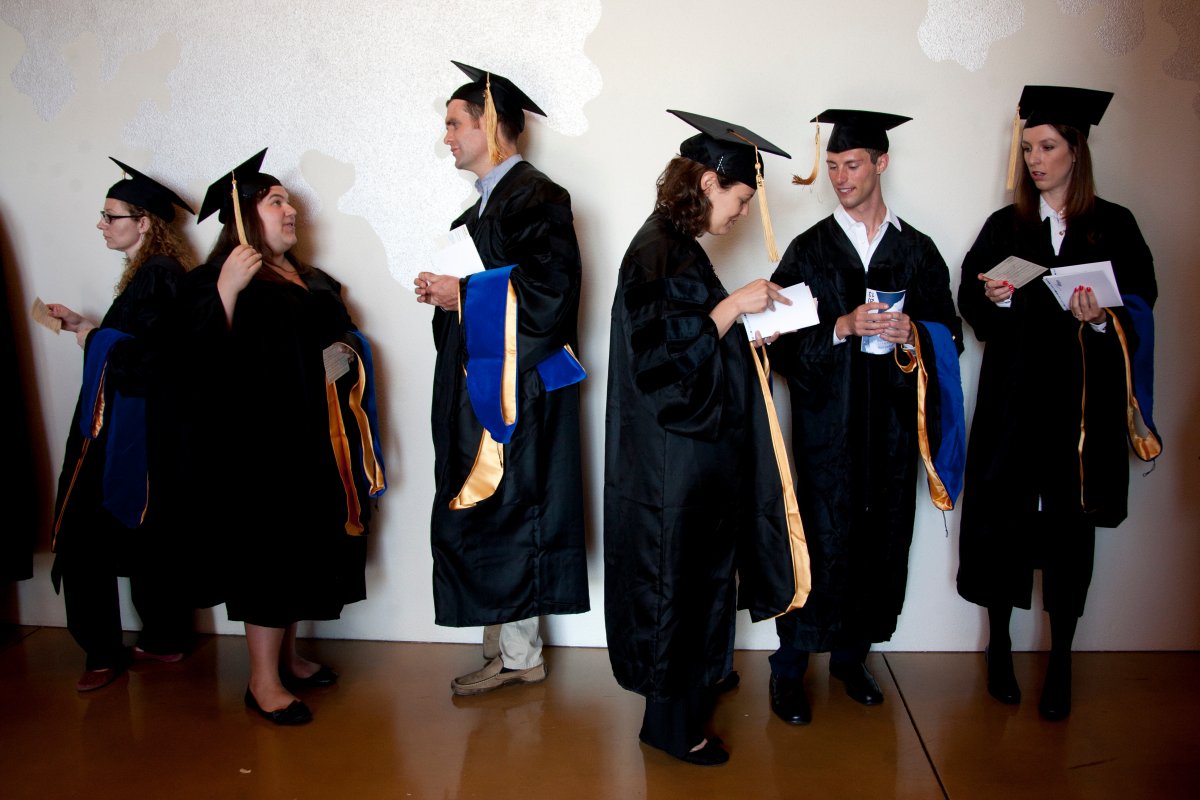Graduate Division Salutes Achievements of Master’s, Doctoral Students
UC San Francisco celebrated the achievements of its graduate students, namely the 104 master’s students, 43 doctoral students in physical therapy, and 121 PhD students who graduated this year.
In her second commencement ceremony since becoming dean, Elizabeth Watkins, PhD, congratulated the students during her opening remarks at a May 17 ceremony in Robertson Auditorium at UCSF Mission Bay.
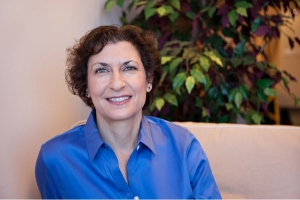
Elizabeth Watkins, PhD
“Our students are integral to UCSF’s research mission and vital to our intellectual climate,” she said. “They conduct research in the basic, translational, clinical, social, and populational sciences, with the goals of improving our understanding of the mechanisms of biology, analyzing the social, cultural, and historical determinants of health, alleviating human disease, reducing health disparities, and advancing health worldwide.”
UCSF’s graduate students also serve as teaching assistants at UCSF and other Bay Area universities, as student government leaders, and as ambassadors for community outreach efforts. “They are a constant source of inspiration for the faculty,” Watkins said.
Source of Inspiration to Students
One such inspiration, she noted, is molecular biologist Joe DeRisi, PhD, who as a graduate student helped to pioneer the use of DNA microarray technology — in which gene activity is revealed on a glass slide — to carry out studies on infectious diseases.
A Howard Hughes Medical Institute investigator since 2005 and 2004 MacArthur Fellow, DeRisi was selected as the 2013 Graduate Division commencement speaker.
“Joe is a prime example of the interdisciplinary and transdisciplinary [work] we value so highly here at UCSF,” Watkins said. “Not only does he employ interdisciplinary approaches in his research, he fosters that spirit in our students.”
DeRisi’s work combines genomics, bioinformatics, biochemistry, and bioengineering to study parasitic and viral infections in a wide range of organisms, from humans to honeybees. He and his team developed a virus chip, which is a comprehensive array of characteristic DNA sequences from each viral family that is used for rapid detection of viruses and discovery of unknown viruses.
In January 2003, DeRisi and his then-postdoctoral fellow David Wang used a microarray designed to detect all known viruses — and even those never seen before — to provide the confirming evidence that SARS (severe acute respiratory syndrome) was a novel form of a coronavirus. At the time, Julie Gerberding, MD, then director of the U.S. Centers for Disease Control and Prevention, called his tool the “absolute state-of-the-art probe for viral genes.”
About the Graduate Division
The UCSF Graduate Division has 17 PhD programs, eight masters programs, and a doctoral program in physical therapy. UCSF has 1,600 graduate students, who are among the nation’s best and brightest.
The Graduate Division was formed 52 years ago in 1961 by the Regents of the University of California to provide leadership for graduate education and to serve as an administrative home for student admissions, degree progression, and the development of campus policies affecting graduate academic students.
The Graduate Division also grants fellowship awards, reviews graduate programs, helps to develop new degree programs, and serves as the main advocate for graduate students across the campus.
Slideshow photos by Cindy Chew. Portrait by Susan Merrell

